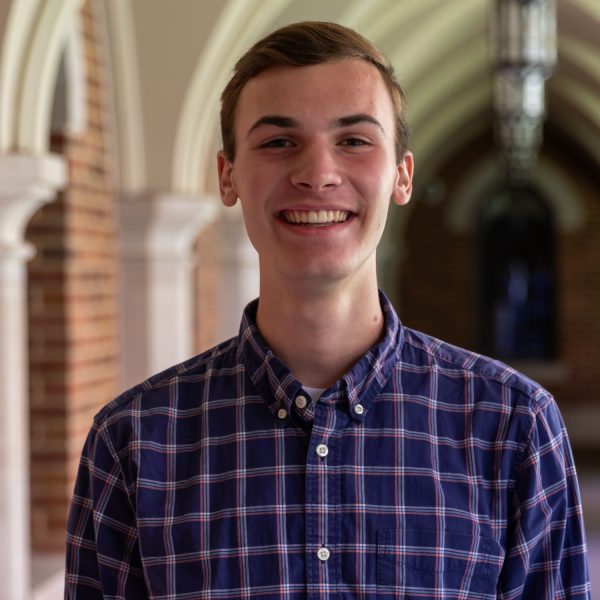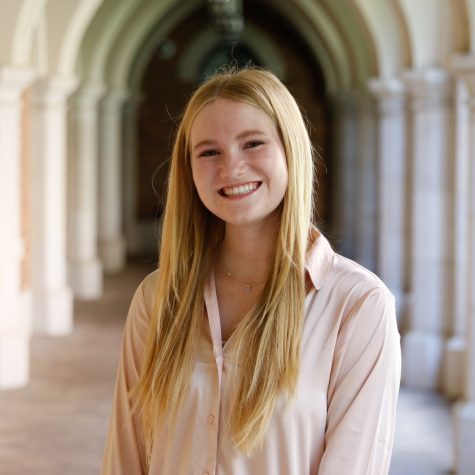The Departments of Human and Organizational Development and Communications Studies will implement changes to their major and major and minor curriculums, respectively. These changes, which are optional for current students and will go into effect this summer for all incoming students, are designed to allow students more flexibility in their class selection and permit a more personalized course of study.
In addition to these changes, communication studies professor John Sloop said he is working on a proposal for an interdisciplinary Sports and Society minor outside of the Department of Communication Studies. As of publication, this minor has not been formally proposed to the university.
“I’ve just begun building an archive of existing courses and looking at our strengths in this area as a college,” Sloop said. “I team teach a course about soccer and culture and have recently written a book in that area, and this is how I started thinking about how this could be an interesting area of study.”
Human and organizational development changes
Previously, students majoring in HOD took six core courses and declared one of five tracks, choosing from Community Leadership and Development, Health and Human Services, International Leadership and Development, Leadership and Organizational Effectiveness and Education Policy. These tracks are being replaced by a new “domain” structure, and the six core courses are being reduced to five.
Students will take a minimum of two courses within each of the three domains: Individual/Interpersonal, Group/Organization and Community/Policy. According to HOD Director of Undergraduate Studies Leigh Gilchrist, flexibility in course selection and personally-tailored student experiences were goals of this redesign. Instead of declaring a track, students have the option to declare a “pathway” based on the six domain courses they take. These pathways can be student-created or program-generated, but declaration of a pathway is not required nor will it appear on students’ transcripts.
“Throughout the redesign process, the HOD department remained focused on our mission while strengthening the linkages between the curricular structures of the major,” Gilchrist said. “We were attentive to the diverse expertise of our faculty and to the alignment with student interests and needs.”
Junior Adam Anspach, majoring in HOD on the Community Leadership and Development track, said the major’s flexibility drew him to it.
“I was undecided on what I wanted to do and liked the fact that there were a lot of different career paths that I could take with it,” Anspach said. “There’s a nice mix of different disciplines within psychology, sociology and business with different aspects of each that interested me.”
Anspach said he plans to switch to the domain system from his current track if he can register for the courses he needs to do so. He added that the possibility of greater availability of classes outside of a declared track is an advantage of the new structure.
“It’s almost impossible to get into classes not in your track, and I would like to be able to explore more,” Anspach said.
Anspach added that one potential disadvantage of the new system is the way it does not benefit people who know exactly what they want to study.
“You do have to take different stuff now, and you can’t just focus on one thing, but, overall, it’s a good change that allows people to develop more well-rounded skills,” Anspach said.
Ella Reynolds, a first-year majoring in HOD and who has not yet declared a track, said she sees the more generalized nature of the domains as a benefit.
“The domains give people a broader spectrum, and it’s not a direct path that you have to stick to,” Reynolds said. “It’s exciting that I get a choice between the domains and the tracks, but I’m leaning towards staying with the tracks just because I know the most about them.”
Sophomore Sam Ea, an HOD major on the International Leadership and Development track, said he appreciates the greater flexibility offered by the domains but still has some questions about the new design.
“I like the priority enrollment that I get for International Leadership and Development track, and I want to know how that changes with these new domains,” Ea said. “There’s three classes in the International Leadership and Development track that I already want to take, so I will probably stay with the track system.”
Gilchrist said HOD offers numerous support outlets for students as they consider switching to the domain system, including a “Navigating HOD” page on the groups tab of HOD students’ Brightspace homepage, which has resources and a discussion board, an email account dedicated to answering questions and Zoom office hours for one-on-one questions.
Gilchrist also mentioned that student, faculty — including the HOD Undergraduate Faculty Committee — and staff input were taken into consideration throughout the curriculum change process. Also, through the student-led “Innovating HOD” initiative, a series of focus groups of HOD majors were piloted in Fall 2021 to give feedback on the curriculum and suggest future improvements, and more focus groups were launched in Spring 2022.
“After considering the feedback gathered during these focus groups, in Fall 2022, we — an HOD students and faculty collaboration — developed and delivered a survey to our students delving deeper into some of the areas raised during the focus group process,” Gilchrist said. “Through the ‘Innovating HOD’ initiative, we connected with over 600 of our students regarding the HOD major.”
Communication studies changes
The communication studies major and minor in the College of Arts and Science is also undergoing changes to its curriculum.
The general structure of the curriculum will stay the same, with students in the major taking classes across four categories (Foundations; Argumentation and Advocacy; Public Discourse and Deliberation; and Culture, Theory and Critique) and additional electives.
The changes include new course offerings in each category and the combination of three classes (CMST 3000, CMST 3001 and CMST 3002) into a new class CMST 3050: Histories of Public Communication. The changes to the minor are of a similar nature.
Junior Mykayla Couchenour said the department was “due for a revision” and added that she believes the idea of combining classes into CMST 3050 is a good idea.
“They cultivate the same skills, just with different content. It opens up the department to offer more diverse and widespread courses,” Couchenour said. “I am not going to update my degree completion plan, but that’s just because I only have two semesters left and only need to knock out a couple more classes that weren’t affected by the revision.”
Couchenour added that the department is working with those who want to switch to the new curriculum to ensure they can meet requirements. Per an April 4 email to communication studies majors and minors, students should not have any difficulty in completing existing requirements and can work with their adviser to switch over to the new curriculum.
Junior Reilly Caldwell also said she liked the greater variety of courses offered under the new curriculum and plans to take CMST 3050 as part of her degree requirements.
“It’s great how I have more of a chance to pick a required class that I’m interested in,” Caldwell said. “I’m excited to learn more about the history of rhetoric and take another class with one of my favorite professors.”








